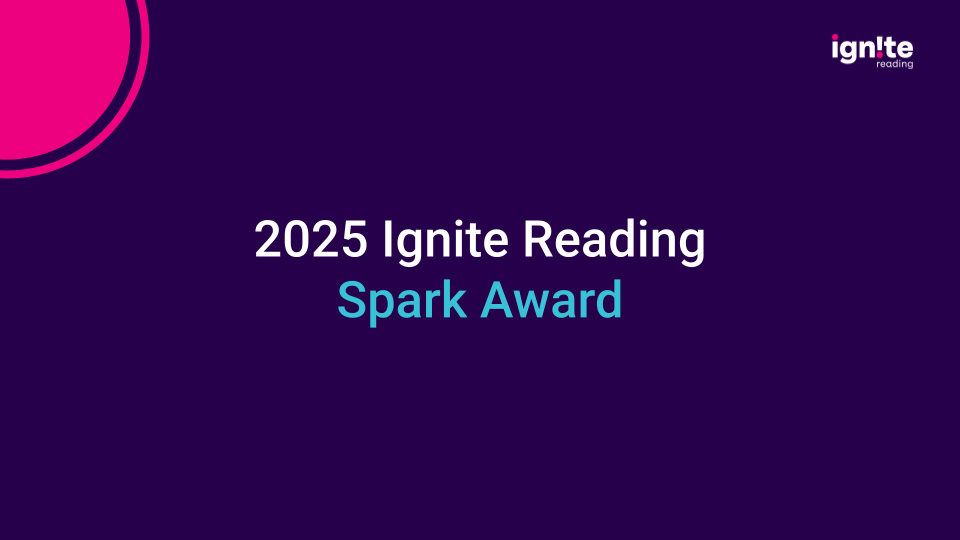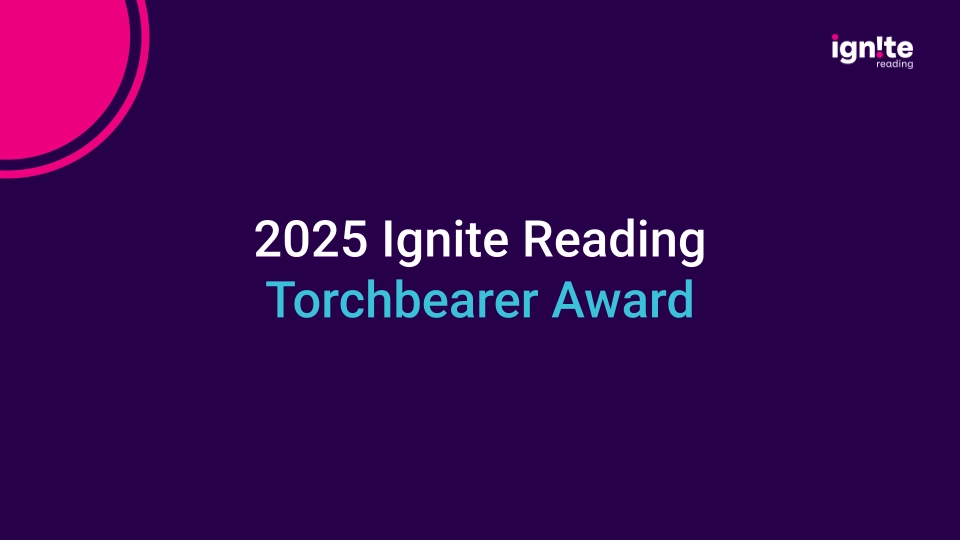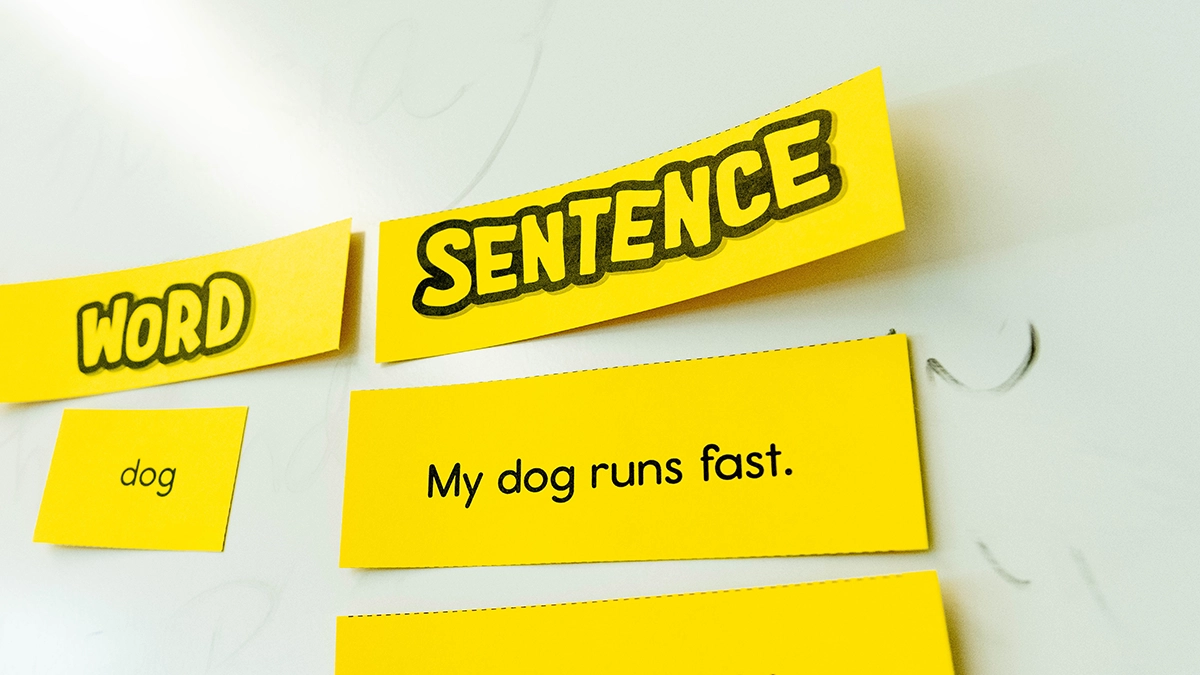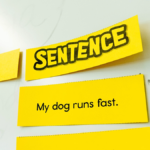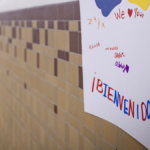The phrase Science of Reading is everywhere these days. Lucky for listeners that includes a wealth of Science of Reading podcasts chock full of info on everything from the latest literacy legislation to the neuroscience behind how the brain learns to read.
Is your district or school’s literacy ecosystem shifting toward the Science of Reading? Curious what scientists have uncovered about the best way to teach reading ?
Adding a podcast (or three) to your playlist is a great way to get up to speed fast. There’s just one question: Of all the podcasts out there, which ones are worth adding to your queue?
From complete series like Sold A Story: How Teaching Kids to Read Went So Wrong — a podcast about America’s literacy education crisis created by non-profit American Public Media — to single episodes that explore the changes schools need to make in order to ensure their students become fluent readers, here’s a look at some of the best podcasts to make sense of the Science of Reading.
Science of Reading Podcasts & Episodes
Sold a Story: How Teaching Kids to Read Went So Wrong
We couldn’t possibly start a list of the best Science of Reading podcasts without one of the top podcasts of 2023.
Sold a Story might be the best-known of any podcast on the topic of the Science of Reading, and it’s a hands-down favorite among a number of members of the Ignite Reading team.
“It paints a picture of the phonics gap so many educators felt at the time while also demystifying how students learn to read,” says Sara Twaddell, a senior literacy specialist at Ignite Reading.
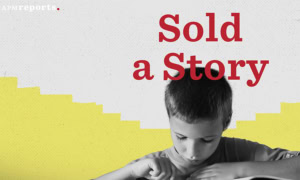
Released originally as a six-episode series in 2022, the podcast details how three-cueing — a method of teaching children to read that has now been widely discredited by reading researchers and cognitive scientists — took hold in the American education system and the impact that hold has had on generations of kids.
The reporting of journalists Emily Hanford and Christopher Peaks is meticulous as they sift through decades of history and interview cognitive scientists, teachers, parents and even students about the discredited theory that students can learn to read through exposure and looking at whole words. The result is an eye-opening look at the issues with reading instruction in America.
Shannon Hepler, also a senior literacy specialist on the Ignite Reading team, recalls a mixture of feelings when she first listened to Sold a Story.
“[I was]affirmed because, as the special educator in the room, I never shifted my focus far from teaching a phonics-based approach to reading,” Hepler recalls. “Because the notion that ‘students will figure it out if I ask them enough questions about it’ is not a strategy that works for most students with disabilities.”
At the same time, however, Hepler says she became increasingly appalled the more she listened.
“Because,” as Hepler explained, “as a society, we have failed so many children, and we’ve done so mostly out of pride and an inability to truly listen to viewpoints that conflict with those we already have.”
Millions of listens later, Sold A Story has opened the eyes of educators and parents alike regarding why America has been in a decades-long literacy crisis and the solution for teaching reading effectively that has been around all along.
Where to Listen:
A Novel Idea: The History of the Science of Reading
Must-Listen Episode: The Science of Reading — Where Do We Go From Here?
Produced by the University of Iowa’s Iowa Reading Research Center, A Novel Idea is a Science of Reading podcast that takes listeners deep into the history of reading education, going as far back as the Enlightenment to explore the origins of reading instruction.
Hosted by Meg Mechelke, the podcast brings in experts each episode to share their breadth of knowledge. Emily Hanford, reporter on Sold a Story, is among A Novel Idea’s guests, providing her take on what she calls an “awakening” to the problems that exist with how kids are being taught to read.
Mechelke and the Iowa Reading Research Center team manage to plumb uncovered depths, offering up valuable insights of their own. Among our favorite episodes is #8, which provides tips on evaluating reading curricula and how to interpret scientific research.
Where to Listen:
MindShift: How We Will Learn
Must-Listen Episode: How Families are Pushing Schools to Teach Reading Skills More Effectively
NPR fans may already be familiar with MindShift: How We Will Learn. The show was launched more than a decade ago by KQED News to offer NPR listeners regular, in-depth reporting on how America’s kids are being taught and raised.
Because it’s aimed at a wide audience of not just educators but also parents, community leaders, and just about anyone else who cares deeply about how kids learn, the podcast approaches topics in a way that’s approachable for everyone — no matter how well versed (or not) you are in any one concept.
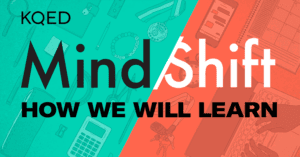
Ki Sung and her team have tackled the nation’s literacy crisis more than once — including a recent episode titled How Much Phonemic Awareness Do Kids Really Need? But it’s the 2020 look at parents who are demanding better reading instruction for their kids than they received themselves that you may want to put on top of your podcast queue.
We’ll admit to a tiny amount of bias here. This MindShift episode features a guest appearance by Ignite Reading’s own CEO, Jessica Sliwerski.
Where to Listen:
The Knowledge Matters Campaign Podcast
Must Listen Episode: Dylan Wiliam on How the Brain Learns
The Knowledge Matters Campaign is a project of StandardsWork, Inc. (which they call “a non-profit do-tank”” —”) aimed at championing knowledge-building curriculum in all schools.
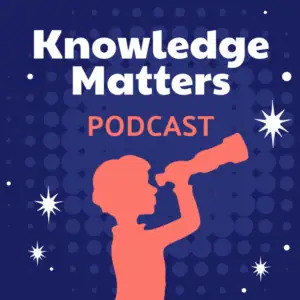
The campaign’s podcast has devoted its entire third season to literacy and the science of learning, offering up six 30-minute episodes hosted by well-known educators Dylan Wiliam, Doug Lemov, and Natalie Wexler.
Don’t let the brevity of the episodes fool you. Each one is packed with insights unique to each educator’s background, with William breaking down cognitive load, Lemov exploring the critical role fluency plays in preparing students for comprehension tasks, and Wexler drawing the line between knowledge retention and critical thinking.
Start at the beginning of the podcast’s three seasons to hear Wexler host two seasons focused on reading comprehension, or skip right to season three for a focus on the Science of Reading.
Where to Listen:
Shanahan On Literacy
Must-Listen Episode: What Does It Mean to Follow a Program? Issues in Fidelity
This podcast is hosted by Dr. Timothy Shanahan whose credits in literacy education run deep.
In his more than 50 years in education, he’s been director of reading for the Chicago public school system, co-editor of the Journal of Literacy Research, assistant professor in the reading education program at what was then the University of Illinois at Chicago Circle, and president of the International Literacy Association.

In addition, Shanahan was a member of the National Reading Panel convened by Congress in the 1990s to evaluate research on reading instruction, and has served as a member of the board of advisors of the National Institute of Literacy under two presidents, chaired two federal research review panels — the National Literacy Panel for Language Minority Children and Youth, and the National Early Literacy Panel — and helped write the Common Core State Standards.
These days, one of the nation’s preeminent experts on reading education offers his podcast listeners inside access to the sort of expertise he once reserved for our nation’s leaders.
Each Shanahan on Literacy episode covers meaty Science of Reading-related topics like teaching with fidelity and the reading-writing relationship. They are served up in bite-sized chunks ranging from 8 to 22 minutes long.
Where to Listen:
The Triple R Teaching Podcast
Must-Listen Episode: How to Use Assessment Data Within MTSS – With Dr. Stephanie Stollar
Anna Geiger is well-known in education circles as the former teacher behind The Measured Mom blog, home to thousands of printables for elementary teachers.
These days she’s also the voice behind the Triple R Teaching podcast, sharing her educational journey from balanced literacy educator to Science of Reading advocate.
Not sure where to get started? Ignite Reading’s instructional designer, Julia Weber, recommends jumping in ears first with episode 65, a throwback to November 2023 when Geiger interviewed Dr. Stephanie Stollar, an assistant professor in the online Reading Science Program at Mount St. Joseph University.
Stollar unpacks screener data in the episode, zeroing in on key insights she says are often misunderstood by educational leaders.
“She discusses a flexible service delivery model where instruction is delivered in differentiated small groups,” Weber noted. “She’s not asking teachers to do that all on their own, or to meet with one small group while everyone is fending for themselves. Instead, she recommends flooding the grade level with every available adult resource so you can get that small group differentiated instruction that is the hallmark of Tier 1.”
The podcast was a lightbulb moment for Weber, who says she realized the one-to-one services Ignite Reading provides are logistically impossible for schools to provide on their own.
“I speak from experience in schools, developing schedules so we were able to have four to five teachers in the classroom at a time,” Weber related.
Where to Listen:
Right to Read Initiative
Must-Listen Episode: Making Changes in a District by Pamela Guilbault
This must-listen Science of Reading podcast comes from Ontario, Canada where the province’s Human Rights Commission has spent the past several years fighting for an overhaul of reading and writing curricula.
While American educators work to replace ineffective instructional methods with those aligned to the Science of Reading, many of our neighbors to the north are doing the same.
Hosted by Dr. Kathryn Garforth, The Right to Read offers a look at how that work is being done and offers perspective.
Get started with Garforth’s interview with Dr. Pamela Guilbault, a Canadian district superintendent who walks through changes her district made to transition to a structured literacy approach, including how they used data-based decision making and provided Tier 2 and Tier 3 interventions to support at-risk readers.
Where to Listen:
More Science of Reading Resources
- Take a deep dive into all things SOR with a trip all the way back to the 1800s in What Is the Science of Reading? The Research & Its History Explained.
- Visit the Reading League to download The Science of Reading: Defining Guide.
- Explore the National Reading Panel report delivered to Congress by a committee of experts who’d reviewed more than 100,000 research studies into how students learn to read.
More Podcasts to Add to Your Playlist
Looking for more podcasts to fill up your queue?
For tips on how to implement Science of Reading-based instruction at scale in a district, we invite you to listen to Ignite Reading CEO Jessica Sliwerski. Jessica is one of the nation’s foremost experts in techniques for delivering foundational reading skills instruction that ensure kids become fluent readers.
In these podcasts, Jessica discusses how districts use one-to-one virtual tutoring to help their students close decoding gaps. Add these to your queue!
- The Future of Education Podcast — The Imperative to Combine Tutoring With the Science of Reading
- The Mandy Connell Podcast — Ignite Reading CEO Jessica Sliwerski, We Have a Reading Crisis in Our Country
- Inspiring Women Leaders — Episode #29 Jessica Sliwerski
- Leaders of Transformation Podcast — Cracking the Code to Literacy in Children with Jessica Sliwerski
Updated August 13, 2025

